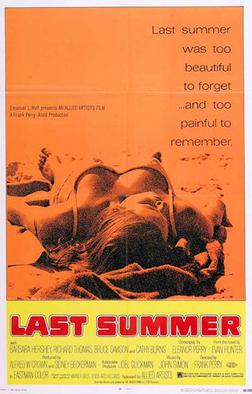A monster is a type of fictional creature found in horror, fantasy, science fiction, folklore, mythology and religion.
A cure is a completely effective treatment for a disease.
A baby, or infant, is the very young offspring of human beings. Or, by extension, it can refer to a young animal.
Jackpot or Jackpot! may refer to:
Lucky means having luck. It may also refer to:

Last Summer is a 1969 teen drama film directed by Frank Perry and written by his then-wife Eleanor Perry, based on the 1968 novel of the same name by Evan Hunter. It stars Barbara Hershey, Richard Thomas, Bruce Davison, and Catherine Burns. The film follows the exploits of four teenagers during a summer vacation on Fire Island, New York.
Hide and seek may refer to:
Fear is an emotion that arises from the perception of danger.
A blue moon is an astronomical phenomenon.
Carnival is a festive season occurring immediately before Lent.
Devotion or Devotions may refer to:
"Once upon a time" is a stock phrase used to introduce a narrative of past events.
Twilight is the time of day before sunrise or after sunset.
Good Girl(s) may refer to:
Black sheep is an idiom used to describe an odd or disreputable member of a group, especially within a family.
The Game most commonly refers to:
A flood is an overflow or accumulation of an expanse of water that submerges land.
Love Story or A Love Story may refer to:
This page is based on this
Wikipedia article Text is available under the
CC BY-SA 4.0 license; additional terms may apply.
Images, videos and audio are available under their respective licenses.
